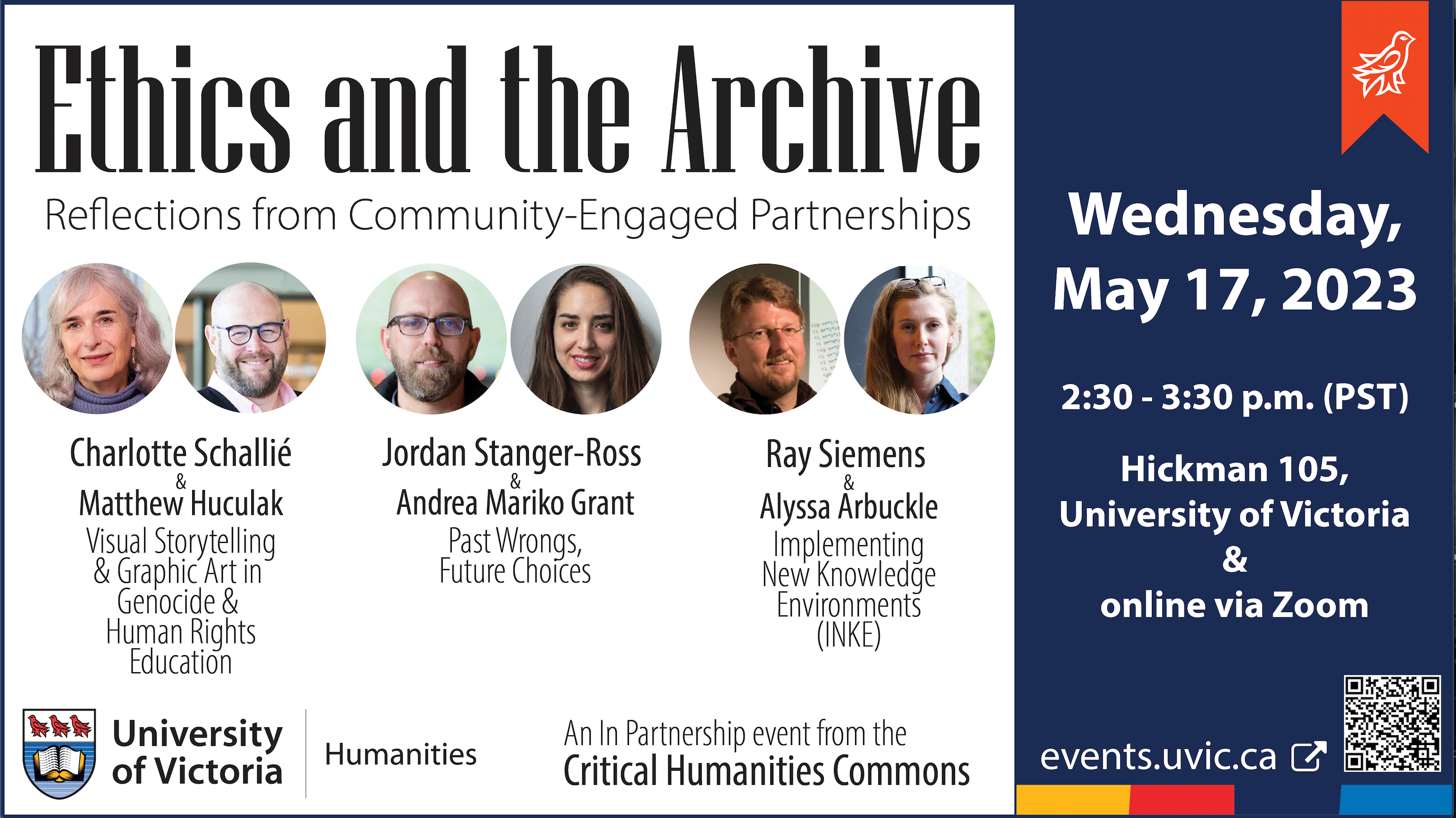On May 17, 2023, Dr. Schallie and Dr. Matt Huculak were invited to participate in a panel at the University of Victoria with six leaders in university/community partnerships based to discuss the ethical implications of conducting Humanities research with communities around the world.
The panel, Ethics and the Archive: Reflections from Community-Engaged Partnership, explored the responsibilities of researchers who bring the public into dialogue with their research, as well as the the ethical considerations and challenges for sharing community-engaged scholarship in and outside of the academy.
The panelists featured were Principal Investigators of the three current Humanities-led SSHRC Partnership Research Grants, with representatives of their collaborative teams:
Charlotte Schallié & Matthew Huculak
Charlotte Schallié, Professor and Chair of the Department of Germanic and Slavic Studies, directs the “Visual Storytelling and Graphic Art in Genocide and Human Rights Education” project. Matthew Huculak is Head of Advanced Research Services & Digital Scholarship Librarian at the University of Victoria Libraries, and the Data and Media Director for the Visual Storytelling and Graphic Art in Genocide and Human Rights Education Project.
Ray Siemens & Alyssa Arbuckle
Ray Siemens, FRSC, is a Distinguished Professor in English and Computer Science. He directs the “Implementing New Knowledge Environments” project, the Digital Humanities Summer Institute, and the Electronic Textual Cultures Lab. Alyssa Arbuckle, Co-Director of the Electronic Textual Cultures Lab, is the Operational Lead for the Implementing New Knowledge Environments partnership and is a co-facilitator of its Connection cluster.
Jordan Stanger-Ross & Andrea Mariko Grant
Jordan Stanger-Ross, Professor of History and winner of the 2022 SSHRC Impact Award for Connection, is co-director of the “Past Wrongs, Future Choices” project. Andrea Mariko Grant is a postdoctoral fellow on the project, working with artists who are using its digital archives.
The event was hybrid, with the option to attend in-person and online via Zoom.
The Faculty of Humanities and the Critical Humanities Commons coordinated this event, sponsored in part by the Office of the Vice-President Research and Innovation.

